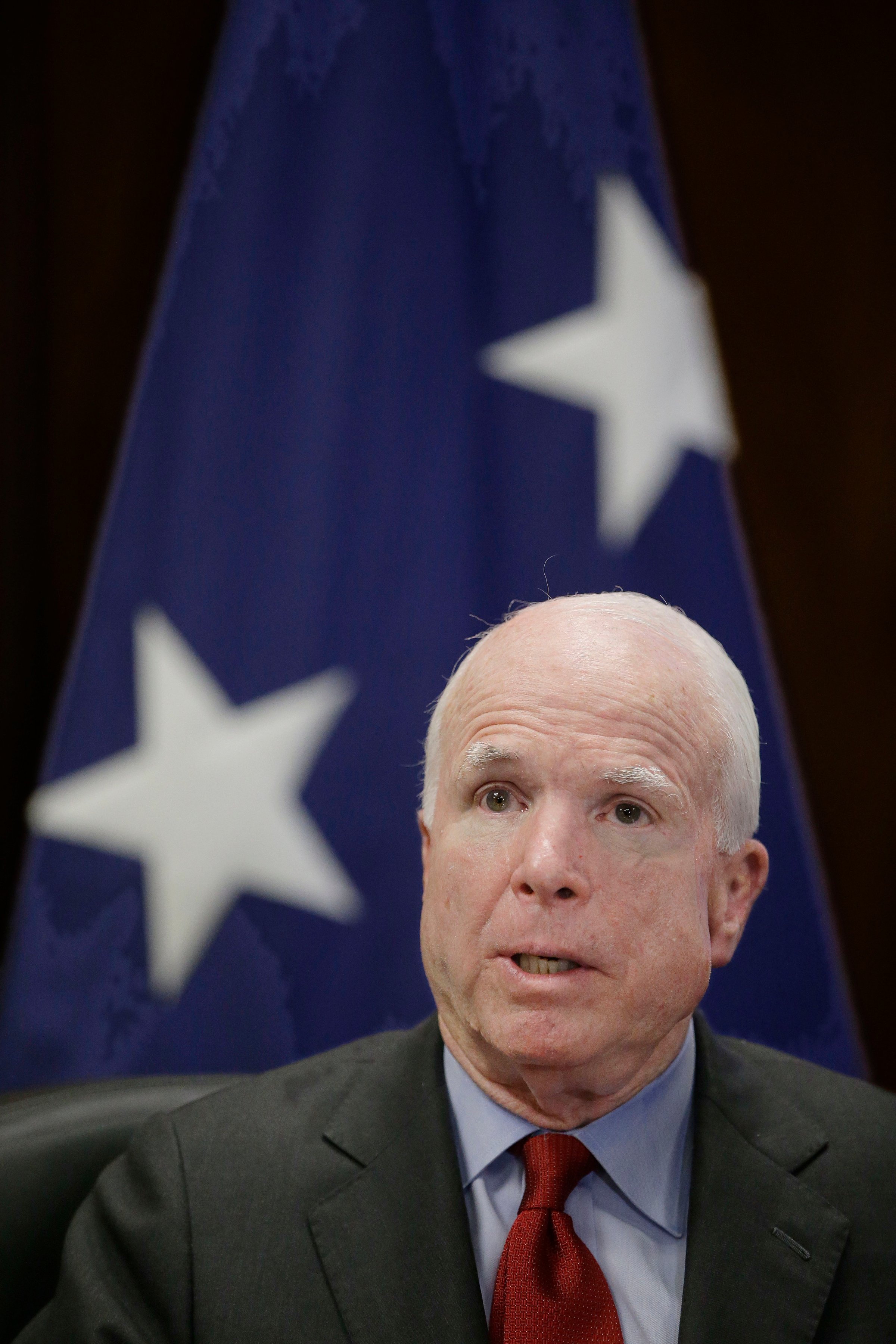
The Obama Administration’s willingness to engage Iran in an effort to contain the spiraling Iraq crisis has exposed divisions between Republicans in Congress.
U.S. and Iranian diplomats talked Monday in Vienna about potentially cooperating in Iraq. The Administration is “open to any constructive process that could minimize the violence, hold Iraq together, the integrity of the country, and eliminate the presence of outside terrorist forces,” Secretary of State John Kerry told Yahoo News.
Not everyone in Congress thinks that’s a good idea.
South Carolina Republican Sen. Lindsey Graham said Tuesday he supports the move given that the U.S. embassy is in the midst of an area thick with Shi’ite militia groups in Baghdad. “It’s in our national security interests to protect our people to have a dialogue with Iran to make sure that they’re doing whatever they can to keep the situation in bounds in terms of protecting our people,” he said. “We’ve got Benghazi’s in the making all over Iraq and there are threats to our people on the ground.”
But Arizona Republican Sen. John McCain, one of Graham’s closest friends in Washington, disagreed. “It would be the height of folly to believe that the Iranian regime can be our partner in managing the deteriorating security situation in Iraq,” McCain said in a statement Monday. “The reality is, U.S. and Iranian interests and goals do not align in Iraq, and greater Iranian intervention would only make the situation dramatically worse.”
Wisconsin Republican Sen. Ron Johnson said that “Iran has no interest in stabilizing Iraq. … The last thing we need in Iraq is to have Iran have greater influence over Iraq. That would just further the tragedy that’s occurring.”
Iran and the U.S. have cooperated before. In the wake of the Sept. 11, 2001 terrorist attacks, Iranian elite Quds Forces provided targeting information used by U.S. forces to bomb Taliban positions. Iran has little desire to see Iraq fall to the Sunni extremist group Islamic State of Iraq and Syria (ISIS), which has captured Mosul and Tikrit in the past week and is within 60 miles of Baghdad.
“Whenever the United States makes a move on the ISIS, then we can think about cooperation with them in Iraq,” Iranian President Hassan Rouhani said over the weekend.
But in Washington, even Democrats were leery of full-fledged cooperation with Iran. “Our primary focus on Iran should be to make sure that they don’t become a nuclear state,” said Sen. Ben Cardin, a Maryland Democrat. “I think that we do have some common interests, but I think the primary focus has got to be the nuclear program.”
The deadline for reaching a permanent agreement on Iran’s nuclear program is July 20, though many expect negotiators will not reach an agreement in time. “They may well have to extension but that was anticipated from the very beginning,” said Senate Intelligence Committee Chair Dianne Feinstein, a California Democrat. “It’s more important to get it right.” House Foreign Relations Committee members on Tuesday sent President Obama a letter on Tuesday reminding him that Congress must sign off on any final deal.
The one thing everyone in Congress did seem to agree upon is the idea that Iraqi Prime Minister Nouri al-Maliki must go. Feinstein, New York Democrat Chuck Schumer, Graham, McCain, Rhode Island Democrat Jack Reed, McCain and Johnson all called for his resignation.
Maliki, a Shi’ite, is widely faulted for failing to form a government inclusive of the Sunni and Kurdish minorities in Iraq, leading to the sectarian collapse Iraq is experiencing today. But calling for his ouster might make any cooperation with Iran awkward as Tehran supports Maliki. The enemy of your enemy isn’t necessarily your friend.
More Must-Reads From TIME
- The 100 Most Influential People of 2024
- Coco Gauff Is Playing for Herself Now
- Scenes From Pro-Palestinian Encampments Across U.S. Universities
- 6 Compliments That Land Every Time
- If You're Dating Right Now , You're Brave: Column
- The AI That Could Heal a Divided Internet
- Fallout Is a Brilliant Model for the Future of Video Game Adaptations
- Want Weekly Recs on What to Watch, Read, and More? Sign Up for Worth Your Time
Contact us at letters@time.com